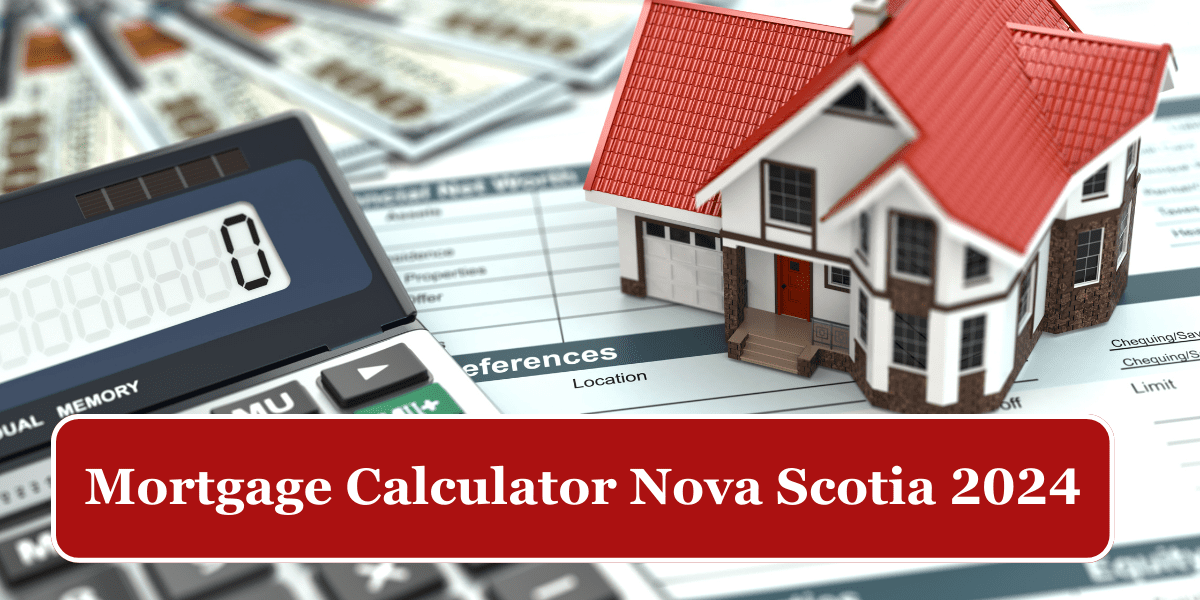Nova Scotia, a province in Canada, frequently ranks among the top in the country for mortgage activity. If you’re seeking the latest updates on mortgage rates and maximum borrowing limits in Nova Scotia, it’s essential to stay informed.
Here’s a comprehensive guide to calculating your mortgage in Nova Scotia and achieving optimal results. Using a mortgage calculator specific to Nova Scotia can greatly assist in making well-informed decisions.
Table of Contents
Mortgage Calculator Nova Scotia
Many individuals turn to mortgages to finance their real estate investments. Typically, a minimum down payment of 5% is required when mortgaging a property. To find the best mortgage rate in Canada, the Nova Scotia mortgage calculator can provide current updates and showcase various applicable rates, which may fluctuate annually.
If you’re exploring options from different lenders, the calculator will help you determine the most favorable rate available. It also provides precise information on applicable interest rates for your mortgage.
| 1000 Rental Assistance For Social Security |
| Canada Disability Benefit 2400 Payment |
| Federal Payment Canada $300 |
| New Bill Increasing Social Security Checks In Us |
| Canada Pension Plan |
How to Use a Mortgage Calculator in Nova Scotia
Mortgage rates can vary yearly due to changes in property rates, so it’s advisable to use the Nova Scotia mortgage calculator to get the latest rate information for your mortgage. Rates can differ from one province to another in Canada.
To secure a mortgage, you can use the calculator to find rates within your financial capability. This post will provide the necessary information, including a table showing mortgage rates within your budget. For more information, read the parts that follow.
Mortgage Calculator Nova Scotia Overview
Utilizing a mortgage calculator helps approximate mortgage costs before committing. Canadian provinces have varying fees and regulations affecting mortgage calculations. A mortgage calculator needs to account for local rules to be accurate.
Ratehub.ca’s Nova Scotia mortgage calculator integrates specific regulations, taxes, and fees relevant to the province. While many rules are applicable across Canada, some are unique to Nova Scotia.
Mortgage Regulations and Fees in Canada
Mortgage guidelines across Canada include:
- Minimum Down Payment: In Canada, a 5% deposit is required for properties under $500,000, 10% for amounts between $500,000 and $1,000,000, and 20% for properties over $1,000,000.
- Maximum Amortization Periods: The maximum period is 25 years for down payments under 20% and 35 years for higher down payments. Longer amortization results in lower monthly payments but higher total interest.
- Mortgage Default Insurance: Also known as CMHC insurance, required for down payments between 5% and 20%. More details can be found on Ratehub.ca’s CMHC insurance page.
Nova Scotia-Specific Regulations and Fees
Nova Scotia has distinct taxes and fees, which may differ from other provinces. Here are some specifics for Mortgage Calculator Nova Scotia:
- Mortgage Rates: Lenders and brokers may offer different rates in Nova Scotia. Ratehub.ca maintains a database of current mortgage rates, accessible through the calculator.
- Land Transfer Tax (LTT): In Nova Scotia, LTT is calculated as a percentage of the home’s purchase price. In the Halifax area, this rate is 1.5%. There are no rebates for first-time homebuyers in the province.
- Non-Resident Provincial Deed Transfer Tax: Non-residents purchasing property in Nova Scotia face a 5% Provincial Deed Transfer Tax (PDTT) on the purchase price or assessed value, whichever is higher. Non-residents who move to Nova Scotia within six months of the closing date are exempt from this tax. For more details, visit the Nova Scotia provincial website.
Factors Affecting Mortgage Calculator Nova Scotia
Several factors influence Mortgage Calculator Nova Scotia, including:
- Gross Income: Your total annual earnings, including gross profit, are used in calculating mortgage affordability.
- Property Tax: Taxes on property ownership are included in the mortgage calculation.
- Heating Costs: Both standard and excessive heating costs impact your overall mortgage expenses.
- Condominium Fees: If applicable, these fees are part of the mortgage calculation.
- Other Debts: Any existing debts, such as credit card balances or bank loans, are considered when determining the mortgage rate.
Current Mortgage Rates in Nova Scotia
According to the 2021 census, Nova Scotia is one of Canada’s most populated provinces. Mortgage rates can vary significantly. Current rates range from 0.05% to 0.25%. Here are some comparative rates:
| Term | Insured Rate | Uninsured Rate | Bank Rate |
|---|---|---|---|
| 1-Year Fixed | 6.79% | 6.44% | 7.49% |
| 2-Year Fixed | 6.39% | 6.34% | 7.09% |
| 3-Year Fixed | 5.99% | 5.79% | 6.70% |
| 4-Year Fixed | 5.79% | 5.54% | 6.49% |
| 5-Year Fixed | 5.74% | 5.54% | 5.89% |
Rates are subject to change based on various factors and the banks’ offers. Note that interest rates tend to rise over time. Try the Canadian Mortgage Calculator to calculate with interest rate compounded semi-annually.
Affordability of Mortgage Calculator Nova Scotia
The Canadian Mortgage and Housing Corporation emphasizes the importance of a stable annual income for managing mortgage rates. Effective expense management, considering total spending and gross income, is crucial.
FAQs
What is the formula for calculating a mortgage?
To calculate a mortgage payment, divide the annual interest rate by 12 to get the monthly rate. Multiply this rate by the loan amount to find the monthly payment. For instance, with a 6% interest rate on a $100,000 loan, the calculation is $100,000 x (0.06 / 12) = $500 per month.
How are mortgages calculated?
Mortgages are calculated based on the interest rate as a percentage of the loan amount. An interest rate of 3% means paying 3% of the loan’s value annually to the lender.




